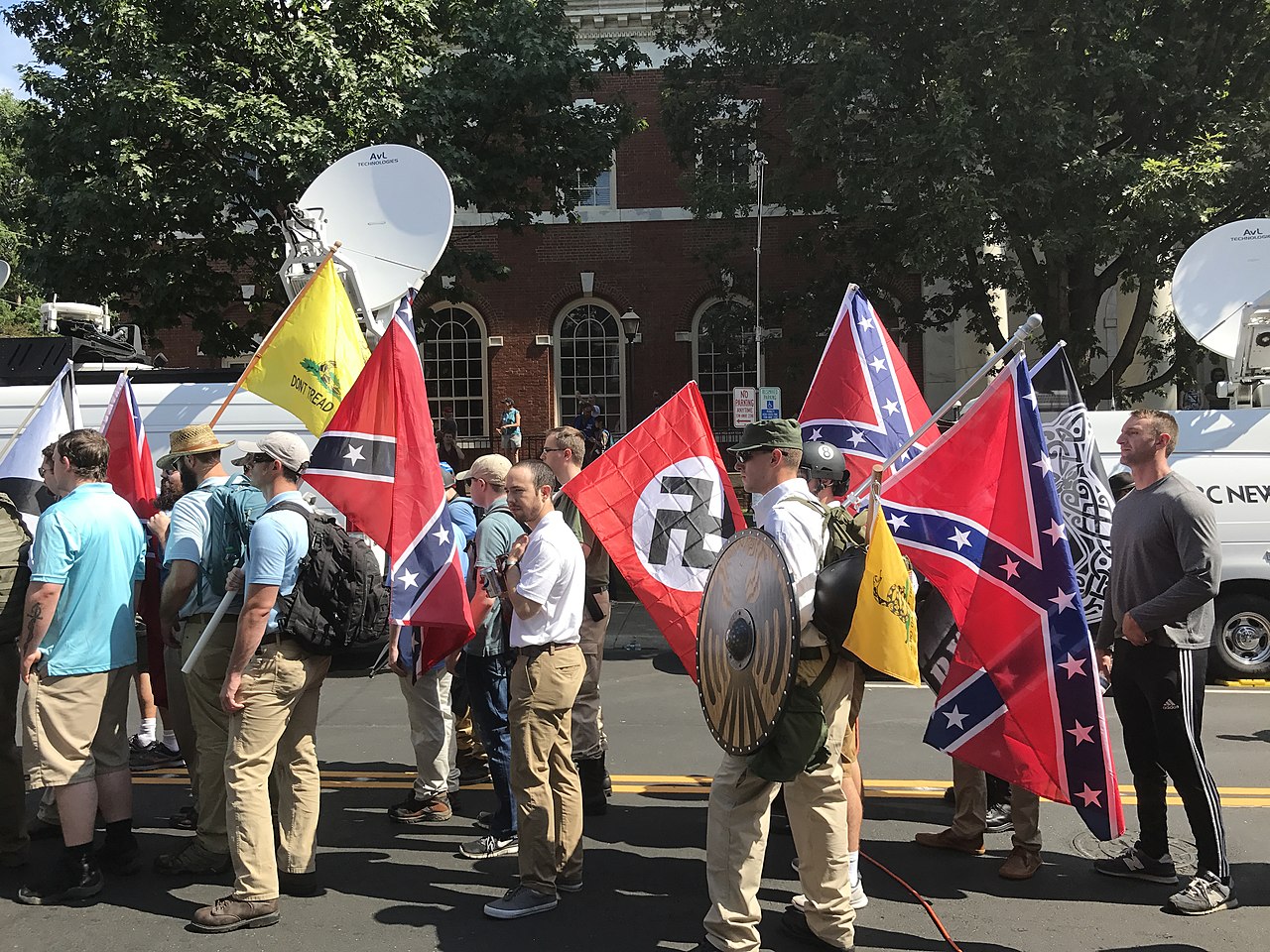What to (Realistically) Expect When You’re Expecting Nazis
The Nazis are coming to Washington this weekend. Counter-protesters are organizing. Antifa is showing up.
Published by The Lawfare Institute
in Cooperation With

The Nazis are coming to Washington this weekend. Counter-protesters are organizing. Antifa is showing up. Officials are worried about violence. And the press is going wild over it all.
I hate to burst anyone’s balloon here, but I know these Nazis, and I’m not expecting much.
Yes, Jason Kessler, the organizer of the Sunday’s sequel to last August’s Unite the Right rally in Charlottesville, Va., has been getting a lot of airtime in national media. He spoke Friday morning with NPR’s Noel King, who allowed him to rank the races by intelligence on Morning Edition. One question King didn’t ask him, however, was how many people he’s expecting at the protest. She should have asked.
The truth is that the press attention Kessler is getting is far more substantial than his protest is likely to be. The National Park Service permit application that Kessler and co-organizer Samaria Ruiz filed suggested that between 100 and 400 demonstrators will attend their rally. And some presentations of the protest in news outlets seem to be expecting hundreds of Nazis. But public statements by other white supremacist leaders, analysis of internet forums and chats, and my own conversations with Nazi organizers suggest something else: In the wake of doxxings, a civil-rights lawsuit, and significant internal rifts, the white-nationalist movement has lost over the past year all of the momentum it seemed to be gaining at the time of Charlottesville. At this stage, it is actually imploding. So while the showing up of American white supremacists in the nation’s capital should be taken seriously, we should also have a realistic assessment of what the movement, as it stands, can actually pull off.
I’ve researched white nationalists in the rural midwest over the past year. At a Pizza Hut in Paoli, Indiana, organizers and attendees of last year’s violent rally in Charlottesville described to me their visions of a white ethno-state. Since then, I’ve maintained contact with some of them. And in the weeks leading up to this weekend’s event, I spoke with several, and they provided important insight into the rally.
Here's the thing: no one knows anyone who's going besides the rally’s primary organizer, Jason Kessler.
I also spoke with white nationalist researcher, Vegas Tenold, who stated in an interview that he would be “shocked if more than 25 attended.”
Joan Donovan, a researcher who focuses on media manipulation and white supremacy, has mined online forums for indications of travel logistics and funding to estimate attendance at such events. She says there has not been much of either regarding Sunday’s protest.
Kessler himself has not released travel plans, and leaked Facebook chats reveal that he is leaning on others for such coordination, explaining to his team that he has “too much on his plate already” to make arrangements for others.
It wasn't always this way. Only a year ago, Kessler was the primary organizer of the Charlottesville demonstration and major leaders were willing to work with him to turn out their people for it. This year, however, they are not playing ball.
In fact, there has even been a counter-movement among many of America’s most prominent Nazis, who are warning their adherents not to attend. Richard Spencer has made statements indicating that neither he nor his followers would be in attendance, including this one:

Andrew Anglin, founder of the Daily Stormer, had a similarly pointed statement to his readers:

Anglin’s statement spoke directly to the white supremacist movement, advising readers that any involvement in Kessler’s march would put them at risk of violence and doxxing. These are movement leaders whose followers do, in fact, follow their directives—if blindly. Another leader who has dissuaded followers from attending, Chris Cantwell, explained to me: “They put a great deal of stock in what I say.”
“Nobody knows anyone that is going,” a self-identified Nazi who attended last year’s rally told me. What's more, nobody even knows who is speaking. Leaked Facebook chats reveal Kessler’s desire to court the attendance of KKK leader David Duke and former Republican Senate candidate Patrick Little, but neither have confirmed that they’ll be there.
Why are prominent white nationalist leaders and rank and file supporters boycotting Kessler's event? Kessler actually has few friends, and his volatile personality has led him to be ostracized by other leaders in white-nationalist circles, based on my conversations with members of the movement. While many white supremacists initially felt sympathy for the legal snare he fell into after Charlottesville—he's facing civil rights suits from counter-protesters—their sympathy quickly turned to hostility, as many felt Kessler lacked the leadership skills and bravado to lead a team of white-race defenders. Many describe him as a “loose cannon” and a threat to the wider “movement.”
In white nationalist social networks and in-person circles, one must search long and hard for someone who is actively promoting the rally, and even further to find someone who has described Kessler in favorable terms. Unsurprisingly, with a movement that lacks ideological stability, social capital goes a long way. Unfortunately for Kessler’s purposes, he appears to be flailing in a puddle of his social ineptitude. Chris Cantwell explained, “I used to think he was the bravest guy in the world because he walked into these dangerous situations without a hint of fear, now I believe that he just doesn’t realize how much danger he puts himself in.” Others contend that Kessler's divisive and volatile personality actually pose a danger.
Kessler himself has diminished has expectations for Sunday's rally. In a chat with 21 prospective attendees, he said: "The Alt Right is poor, disorganized and lacking in conviction.”
So what should we expect on Sunday? A lot of media coverage, a lot of counter-protestors, a lot of anxiety, but not a lot of Nazis.




